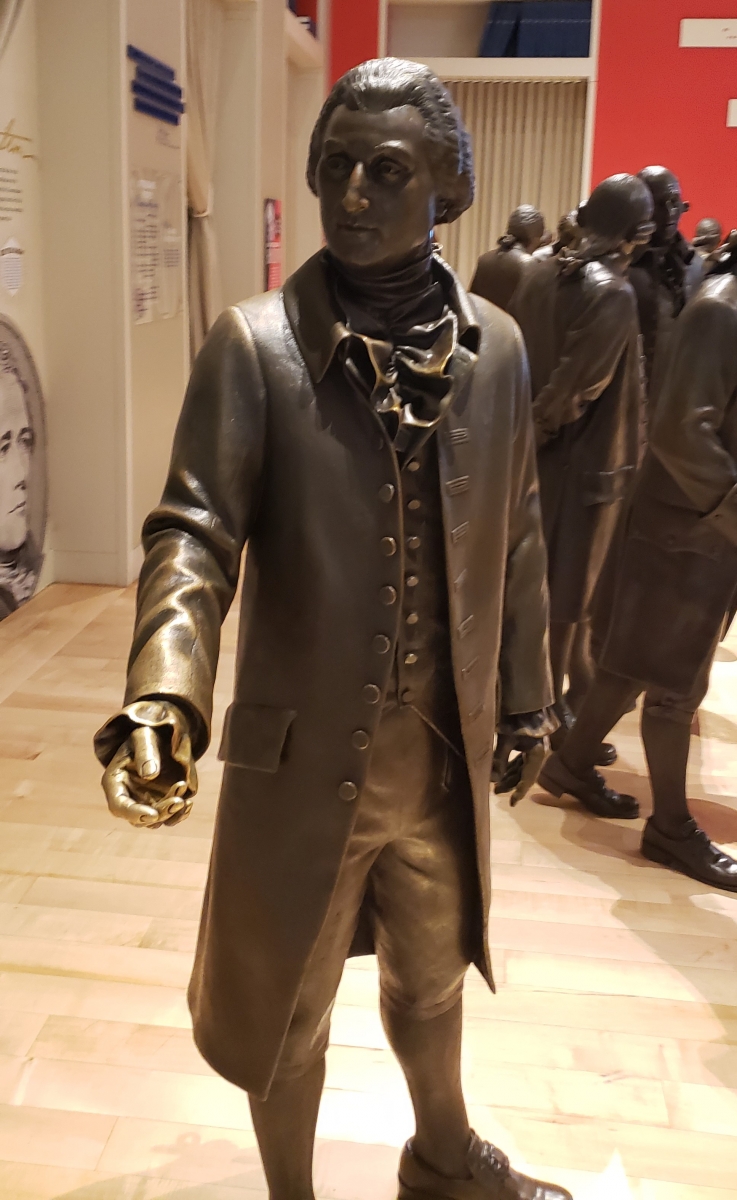Related Posts
- Buy Tickets for The Constitutional Walking Tour of Philadelphia – See 20+ Sites on a Primary Overview of Independence Park, including the Liberty Bell and Independence Hall
- Constitutional Convention
- Independence Hall
- Signers' Garden
- National Constitution Center
- Congress Hall
- Second Continental Congress
Birth: April 6, 1749
Death: March 21, 1800 (age 50)
Colony: North Carolina
Occupation: Plantation Owner, Politician
Significance: Signed the United States Constitution (at the age of 38); served as Governor of the Southwest Territory (1790-1796); and served as United States Senator from Tennessee (1795-1797)

William Blount was born and grew up on his father's plantation in North Carolina. Blount received no formal education, but he was instead tutored and encouraged to learn the business of the family farm. During the American Revolution, Blount and his family helped to provide provisions for the Continental Army. In 1782, Blount was elected to the Continental Congress, but he left in 1783 before being elected again in 1785 and held the position until 1787.
In 1787, Blount was named a member of the Constitutional Convention which met in Philadelphia. At the Constitutional Convention, Blount represented North Carolina and although he was absent for most of the Constitutional Convention, he did sign the United States Constitution.
During his time working within North Carolina's State Legislature and serving in the Continental Congress, Blount was instrumental in forming a plan that involved North Carolina ceding all lands West of the Appalachian Mountains to satisfy North Carolina's tax burden. The plan was implemented following the ratification of the Constitution of the United States, and George Washington subsequently named Blount the first and only Governor of this new land which was named the Southwest Territory in 1790. While Governor of the Southwest Territory, Blount was instrumental in making the territory the nation's 16th state, Tennessee. Once Tennessee became a state, Blount was elected as their first U.S. Senator in 1796.
In 1797, while serving in the U.S. Senate in Philadelphia, evidence came to light of a potentially treasonous scam organized by Blount that would have given the British control of Florida and New Orleans in an attempt to increase the value of land that Blount and his family had lost a fortune investing in. In what has come to be known as the Blount Conspiracy, Blount planned to prevent the Spanish from selling the land to the French by inciting the Creek and Cherokee tribes to support a British takeover of the territory. When presented with evidence of his alleged crimes, Blount tried to flee Philadelphia, but Federal deputies seized his ship and Blount was subsequently impeached from the U.S. Senate and imprisoned for his crimes. However, before his trial, Blount posted bail and fled Philadelphia for Tennessee. Blount's national reputation was forever damaged, but he remained a somewhat popular figure in Tennessee (which he had helped to create), and he was even elected to serve in the Tennessee Senate before he died in 1800.
William Blount in Philadelphia
Blount first lived in Philadelphia to serve in the Continental Congress, and he helped to write the United States Constitution as a member of the Constitutional Convention, which met at Independence Hall in 1787. Blount also worked in Congress Hall as a United States Senator while Philadelphia was the Capital city of the United States. Today, you can also see a statue commemorating Blount for his role in the creation of the United States Constitution in the Signers' Hall exhibit of the National Constitution Center. Signers' Garden pays tribute to the Founding Fathers, including those such as Blount who signed the Constitution of the United States. The National Constitution Center, Congress Hall, Signers' Garden, and Independence Hall are all visited on The Constitutional Walking Tour!



